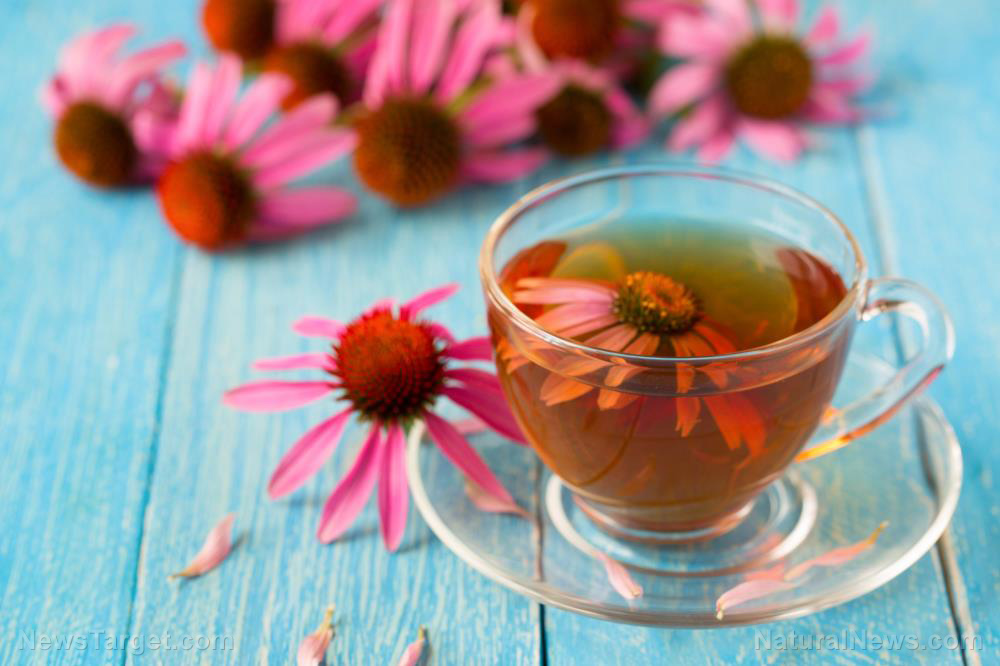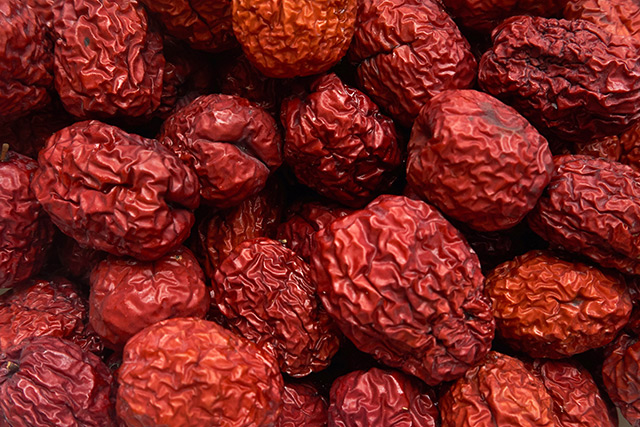Here are the five top tips to help you fight the cold this season
(Article republished from
GreenMedInfo.com)
Vitamin C
This most famous cold fighter both prevents and treats colds. When you take 500mg a day of
vitamin C, you are
66% less likely to catch a cold than when you take a placebo dose of 50mg. A
review of 21 studies that used 1-8g of vitamin C found that, in each of them, vitamin C reduced the length and severity of colds by 23%. A recent
double-blind study gave 1g of vitamin C or placebo to 28 people for eight weeks. In the vitamin C group, seven people got colds; in the placebo group eleven people did: that's a 45% reduction in risk. Compared to placebo, vitamin C shortened the length of the cold by 59%. But, it's best to
take at least 2g a day. The most current word on vitamin C comes from a
meta-analysis of nine controlled studies that found that taking extra vitamin C on top of regular supplementation at the onset of a cold shortens the cold by a significant 56% and significantly relieves symptoms, including chest pain, fever and chills.
Zinc
The media says that zinc lozenges don't work. And they're right: when a study deliberately gives the wrong form or a
placebo dose, they don't. But when you take the right dose of the right form,
zinc lozenges kill the common cold every time.
Research convincingly shows that, when you use an effective form of zinc, zinc lozenges have a remarkable ability to kill colds. Several studies show (
here,
here,
here and
here) that taking 13-23mg of zinc lozenges every 2 waking hours fights off a cold in about four days compared to 7-11 days with a placebo.
A
review of the research found that when at least 75mg of zinc lozenges a day was used, people got better significantly faster in seven out of eight studies. A
recent meta-analysis looked at three placebo-controlled studies that all used an effective form of zinc lozenge: zinc acetate. The zinc lozenges lessened the length of the
cold by nearly three days. The average length of the cold in the three studies was seven days. But taking zinc lozenges shortened the cold by 2.73-2.94 days: that's a big improvement! The
most recent meta-analysis also included only studies of zinc acetate lozenges. It included three studies of 199 people with colds. The doses ranged from 80-92mg a day of elemental zinc. By the fifth day of the study, 70% of the zinc lozenge group had recovered from their colds compared to only 27% of the placebo group. That's huge! That means that 2.6 times more people were cured in the zinc lozenge group. People taking zinc lozenges recovered 3.1 times faster. The researchers called this "a clinically important effect." Zinc lozenges not only beat the cold, they did so safely: there were no serious side effects.
The best forms are zinc acetate, gluconate or gluconate-glycine. Other forms or those flavoured with citric acid, tartaric acid, sorbitol, or manitol don't work as well.
Echinacea
The king of the immune herbs both
prevents and treats colds. In the
largest study ever done on echinacea, 673 healthy people were given either echinacea or a placebo for four months in a double-blind fashion. The people on the
echinacea had significantly fewer colds and cold symptoms, showing that echinacea both prevents and treats colds. The echinacea group caught 149 colds that lasted a total of 672 days; the placebo group caught 188 colds that lasted 850 days. The echinacea group also had significantly less recurrence of colds: 65 compared to 100 in the placebo group.
If you do catch a cold, echinacea helps you get better faster: symptoms improve by day four instead of taking twice as long on a placebo (1). A
double-blind study found that when echinacea is given at the first sign of a cold, the cold lasted an average of six days versus nine days with a placebo. Echinacea also reduces the symptoms you'll suffer. One study found echinacea to
reduce symptoms by 23.1%. Other studies have also shown that echinacea
helps you get rid of your cold faster.
An
important meta-analysis included six high quality, placebo-controlled, long term studies of echinacea on respiratory tract infection recurrence and complication (including pneumonia, bronchitis, ear infection, sinusitis). Echinacea reduced the risk of recurrence by a significant 35%. In people with higher susceptibility due to stress or weakened immunity, the reduction was an even more impressive 50%. Echinacea reduced the risk of complications by 50%, including 64.9% reduction of risk of pneumonia, ear infection and tonsillitis.
As for Tamiflu, the leading flu drug, a
double-blind study that compared a blend of echinacea and elderberry found that by day five, the herbs were already slightly more effective; by day ten, 90.1% of the herb group had recovered versus 84.8% of the drug group. There were less complications and side effects in the herb group.
An especially effective and
well-studied combination is echinacea, wild indigo and thuja (2,3,4).
Elderberry
And, speaking of elderberry, this herb works really well. Elderberry
helps you
recover from a cold in only two to three days compared to seven to eight days on a placebo. A
placebo-controlled study found that
elderberry relieves fever, headache, congestion and cough in only two days. Elderberry is also better than placebo for nasal congestion. The researchers concluded that elderberry was fast, effective and as good as or better than antiviral drugs for the flu. In a
double-blind study, airplane travellers who took elderberry suffered a significant 52% fewer days with a cold and a significant 58% milder symptoms.
New research has shown that elderberry inhibits infection at a very early stage by blocking proteins that allow the virus to attach to and enter cells. Stopping viruses from penetrating into your cells prevents them from replicating. But, one of the reasons that elderberry works so well is that it blocks the virus at many stages, making sure it can't slip through. Elderberry is even better at inhibiting the virus from propagating at later stages if the virus has gotten into the cell. This new study also found that elderberry stimulates the release of cytokines, messengers that immune cells use to coordinate a more efficient response to viruses. The researchers found that it is elderberry's anthocyanidins--powerful antioxidant flavonoids--that are doing the antiviral work.
As for how well elderberry works,
a new meta-analysis of four controlled studies--three that looked at the flu and one that looked at colds--found that elderberry significantly reduces the severity and duration of symptoms. It works for both flu and cold but may be even more effective for flu.
Andrographis
Rounding out the top five is the less well-known herb andrographis. Fast acting and effective,
placebo-controlled research shows that
andrographis significantly improves runny nose and sore throat in only two days. Cough, headache, ear ache and fatigue are significantly improved in four.
Several studies show that andrographis fights colds and sinusitis better than placebo.
Andrographis not only treats, but also
prevents colds. When 107 children took andrographis or a placebo for three winter months, the ones on the herb had a 2.1 lower risk of catching a cold.
In
the most recent double-blind study of people with colds, andrographis reduced the cold intensity score by 11.2 points versus 6.3 points in the placebo group. Significantly more people in the andrographis group were significantly or completely better after five days. After ten days, 90.4% of the andrographis group, but only 21.2% of the placebo group was clinically cured.
The
combination of andrographis and eleuthero outperforms a placebo in the treatment of colds, sinusitis, laryngitis and bronchitis.
Two Bonus Tips: Probiotics & Garlic
Probiotics also
help fight colds. Students under the stress of exams
suffer fewer colds and flus when taking probiotics than students taking a placebo.
Probiotics also help you
recover from respiratory infections significantly faster.
A review of 14 controlled studies found that when you take probiotics for at least a week, you're less likely to catch upper respiratory infections, including the common cold.
Garlic can also kill a cold!
Double-blind research shows that taking 2.5 grams a day of aged garlic extract significantly reduces the severity of colds and flus and significantly reduces the number of days of school or work missed. Over the six month study, the
garlic group had a full 58% fewer colds and 61% fewer days with colds. They also had 21% fewer symptoms with the colds they did catch. And when 146 people were given either a placebo or garlic supplements containing 180mg of allicin for twelve weeks, the placebo group caught a total of 65 colds while the garlic group caught only 24: that's a
significant benefit. The placebo group suffered 366 days of illness compared to only 111 in the garlic group. Though the researchers say the number of days taken to recover was similar for both groups, it was a full day faster in the garlic group. These studies show that garlic can both prevent and treat colds.
If you found this article interesting, join Linda and Ted's newsletter and get The Natural Path delivered to your in-box every month. The Natural Path is Your Guide to Good Health & Vitality: Cutting Edge Research Made Easy.
Subscribe today, and get the latest research to keep you and your family healthy.
Read more at:
GreenMedInfo.com
 Parler
Parler Gab
Gab










